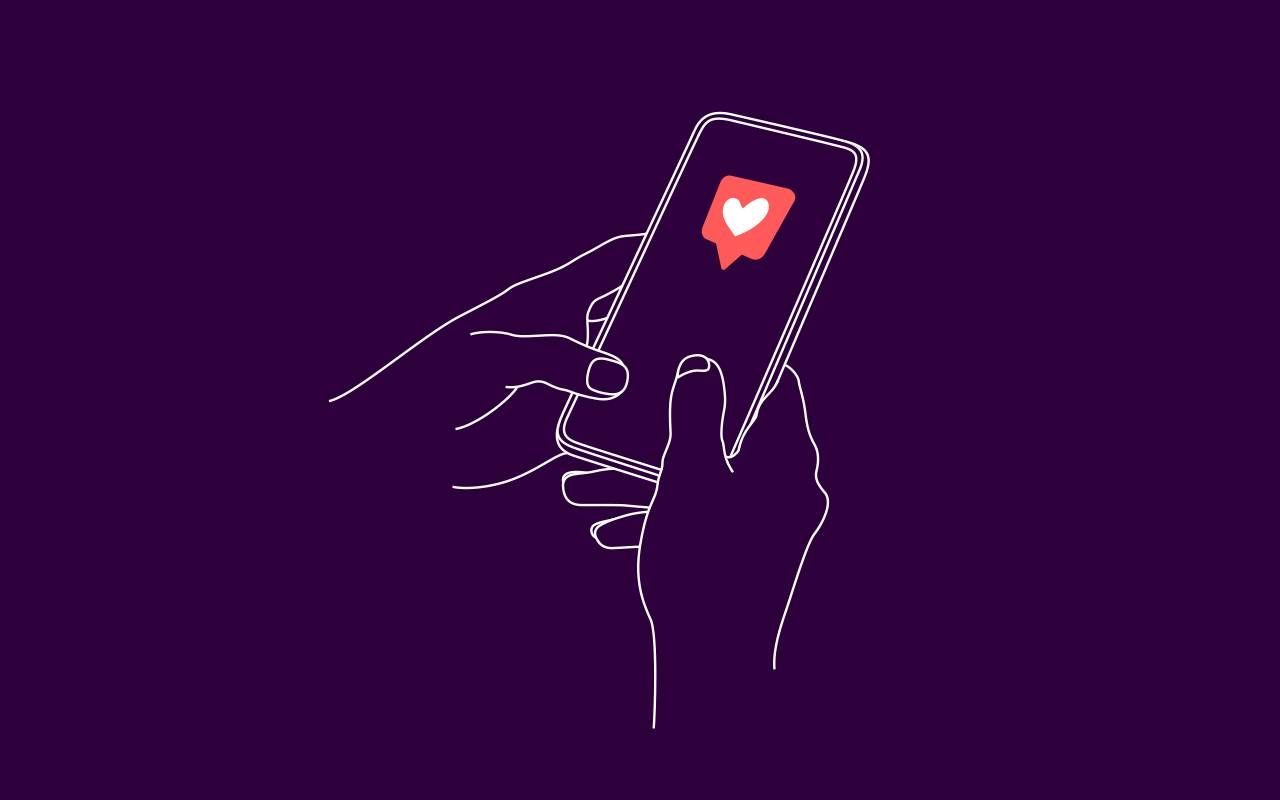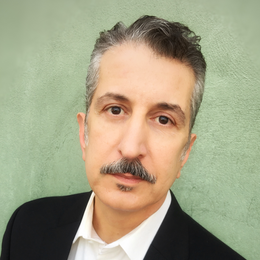Are You There, Aunt Alice? It's Me, Facebook
Trying to figure out why so many people are addressing deceased people and animals directly on social media

I began noticing it a few years ago: People on social media, talking directly to their deceased loved ones in posts and memes.
"Happy heavenly birthday, Mom!" my high school classmate Dan posted to his dead mother on Facebook. "I'm sure you're toasting your special day with Dad!"
That's weird, I thought. Does Dan think his mom is reading her Facebook feed in Heaven?
Then I began noticing it all the time. Every day.
That's weird, I thought. Does Dan think his mom is reading her Facebook feed in Heaven?
"I'm sorry to report that my brother Dave has passed away," my dentist posted. "I'll think of him every time I hear a Gordon Lightfoot song. Say hey to Grandma, Dave, and I'll see you on the other side, dude!"
Maybe, I thought, this was a new version of an ancient belief about death and omniscience. Like, once we've died, we're everywhere, all at once — including peering over the shoulders of living people while they tweet. Maybe that explained the shift in voice, from addressing a collective virtual crowd to talking directly to a dead person. Because that happened in pretty much every one of these posts I saw.
Grieving in a Very Peculiar Way
One morning, late last year, I saw a Facebook meme from my friend Lynda.
"Raffles, you were the best kitty ever," Lynda posted above a photo of an ancient calico. "I know you're running through the tall grasses in Heaven!"
I grabbed my phone and called Lynda.
"I'm sorry about Raffles," I said when she answered. "Um, did she read Facebook when she was alive?"
"Of course not," she replied, sounding exasperated. "She was a cat."
"Okay," I said. "But then this morning, you wrote to her in a Facebook post, as if she were somehow reading it. You spoke directly to her, as if she were alive."
Eventually everyone's going to grieve some loss or another. But in the 21st century, we seem to be doing it in a very peculiar way.
"Are you editing my grammar again?" Lynda asked. I knew she was still angry about the time I tried to explain to her the difference between "everyday" and "every day."
"No," I said. "I'm trying to figure out why so many people are addressing deceased people and animals directly on social media. I don't want to be mean about it, but if you write something to your dad as if he's reading it, and he's dead — "
"Look," Lynda interrupted. "I have to go. I'm grieving."
I felt bad that I'd upset my friend. But not bad enough to stop chasing this confounding question.
The thing is, eventually everyone's going to grieve some loss or another. But in the 21st century, we seem to be doing it in a very peculiar way.
Maybe Lynda's right. Maybe it's just the repressed English professor in me. My toes curl whenever I see someone shift from addressing a group of living people on social media to addressing someone who's deceased. In the same post. Without a paragraph break or an ounce of irony.
A Primal Urge?
People who express grief by posting notes to their dead Aunt Marge don't deserve my disdain. But the whole thing is nutty. If you're addressing someone by name, on social media, it's because you think they're somehow reading — or at least receiving — the message. Right?
"Not necessarily," Jim Meadows told me. Meadows is a retired pastor of the United Church of Christ who facilitates grief counseling groups in his spare time.
"In the past, people would go to a cemetery and talk to their loved one while sitting on that person's grave," he said. "Today, social media provides another avenue for doing that same thing."
So, does that mean people believe the dead are checking their Twitter feed from beyond the grave? And if they died before Twitter got rebranded, does that mean they don't know it's now called X?
"It's a manifestation of an unconscious internal conversation that people have. It's a primal urge."
"I'm not a big user of social media myself," Meadows admitted. "So I can't say. But if we think people who've passed away can hear us when we talk to them in a cemetery, why wouldn't they hear us when we write to them on social media?"
I texted my friend Kathleen. She's the most cynical person I know; I figured she'd have an answer about why people are sending birthday wishes to dead people.
"If it were 20 years ago," I typed, "would we be sending faxes to our dear departed? If I was at a dinner party and someone asked after my mom and I said, 'She died two years ago,' then began speaking directly to my mother, would everyone excuse themselves and leave the table?"
"You're never going to get to the bottom of this," Kathleen replied. "It's a manifestation of an unconscious internal conversation that people have. It's a primal urge, or maybe part of Jung's collective unconscious. Who knows?"
I certainly didn't. But I wanted to.
Writing Letters to Dead People
"Think of it as the new version of journaling," Kelli Callaway told me when I asked why people were posting afterlife social media messages. "It's like the letter-writing we suggest our clients do when a loved one dies."
"You tell people to write letters to dead people?" I asked Callaway, who manages a team of grief counselors at Providence Hospice of Seattle.
"Sure. But now there's an open forum where you can do it for other people to see, too."
She told me about how Facebook has a new policy where someone can keep your page active after you die, so people can leave you messages there. After hearing this, I had to go lie down in a dark room with a cold compress on my forehead.
There in the gloom, I began to wonder: Is speaking to the dead on social media sites a way of keeping them alive?
There in the gloom, I began to wonder: Is speaking to the dead on social media sites a way of keeping them alive?
"No," according to Ann Wheat. She's the executive director of Duet, an interfaith organization that provides services to older adults. "I think people are clear-eyed that the person has died. I think it's more that people believe that the dead are always with us."
"Reading our Facebook feeds?" I asked, because I couldn't help myself.
"No," Wheat said. "I don't think people who are posting messages to the dead necessarily think the loved one is getting the message. But when you're grieving, you do what you have to. Sometimes that means writing a post to your sister who passed away, even if you don't believe she's seeing it."
Sharing Grief
According to "Communication with the Dead, Continuing Bonds, and Facebook," a Southern Illinois University study conducted by Jocelyn M. DeGroot and published in 2011, posting a Substack Note to your dead sister isn't a terrible idea.
DeGroot maintains that "communication with the deceased can be healthy for the bereaved individuals." The study found that "people readily admit to communicating with the deceased … This communication includes the deceased as receiver [and] what the sender believes the deceased would say [in response]."
But another study by T.A. Rando published in "Omega: Journal of Death and Dying" in 1992 pointed out that while disengagement from deceased loved ones was once the end goal of mourning, "attempts to maintain a relationship with the deceased were deemed a psychological concern that should be actively avoided or remedied."
I telephoned Tracy Fessenden, an Arizona State University professor of religious studies, to talk about these studies. She wanted to talk instead about how an absence and a presence are mirror images of themselves.
"Private grief is a burden. I can dream of someone who's died, and that's private. If I tell someone about the dream, it becomes shared."
"And so an absent person can be present," she told me, "if we choose to see it that way."
I would have, if I'd understood what she meant. Fessenden swore the whole talking-to-dead-people-on-social-media thing was less about communicating and more about sharing grief.
"Private grief is a burden," she told me. "I can dream of someone who's died, and that's private. If I tell someone about the dream, it becomes shared."
Fessenden asked me to think about listening to a Billie Holiday record as a way of communing with Billie as if she were still alive.
Before I could ask what that had to do with chatting up dead people on Instagram, she told me about how when it was first invented, the telegraph was considered magical.
"All of a sudden," she said, "we could whisper to people who were far away from us, and they got our messages. This is the modern version of that."
Yes, I wanted to say, but the people receiving those messages were alive. Instead, I asked if she thought the people who were posting these messages believed the dead were reading Snapchat posts.
"I think we're all just making it up as we go along," she said, which surprised me. "There's nothing new about assuming people in the afterlife are doing what we're doing when we're alive. So why wouldn't you believe your Uncle Ray is up in heaven, tweeting between cocktails with Frank Sinatra?"
Fessenden said she hoped I didn't think folks who write to their dead loved ones on Facebook are a bunch of deluded idiots.
"Of course not," I lied.
After we hung up, I wandered into the den and put a Billie Holiday record on the hi-fi. I tried to imagine that Billie was there with me, singing about her sailboat in the moonlight. I felt silly.
I decided to try writing a letter to my friend Christopher, who had died a couple of weeks before; his husband, Matt, kept Christopher's Facebook page going so that people could send messages to Christopher.
But that felt weird, too. "You're kidding, right?" I could imagine Christopher saying, if he were alive. "You're writing a social media post to a dead person?"
"Jeez, Chris," I said aloud. "I'm just trying this out to see — "
And I realized I was home alone, speaking to a dead person as if he could hear me.
Just then, the Billie Holiday record began to skip.


